12 May Do Artificial Sweeteners Have A Place In YOUR Diet?
How (artificially) sweet it is…or is it?!?
You want to eat healthier, you want to lose weight, but you still have have those cravings for something sweet. Food companies know this, and have worked hard to give us “sweet” options that have no calories; and if you listen to the marketing…no guilt! BUT, are these artificial sweeteners a good idea and will they get you closer to achieving your health & fitness goals, or push you farther away? Do artificial sweeteners provide a viable option to satisfy that sweet tooth, or are they chemical substances with potential side effects? Read on, and decide for yourself…
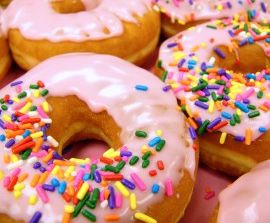 “Dang it! I am eating “sugar free” but I still have cravings!”
“Dang it! I am eating “sugar free” but I still have cravings!”
This is a common complaint I hear frequently. Although the sugar substitutes have little to no calories, when consumed, they have been shown to increase sugar cravings. WHY is that? The theory is that our bodies sense the sweetness of the food and expect the calories. When you consume the artificial sweetener without the calories, your body continues to crave the calories so you end up eating more calories to make up for it. For instance if you eat 15 sugar-free cookies, you are actually consuming more fat and calories than if you ate 2 regular cookies.
What are the various “types” of sweeteners and is one better than another?
Saccharin (Sweet & Low)
This is the original sugar substitute and has been used as a food additive since the early 1900’s. Saccharin is 300 to 500 times sweeter than sugar. It is the most studied. It’s popularity peaked in the 70’s during the diet craze. It’s LOW came in the late 1970’s when it gained a warning label for the potential to cause cancer! YIKES!
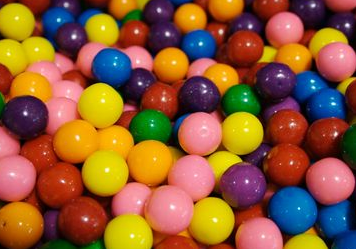 Aspartame (Equal & Nutrasweet)
Aspartame (Equal & Nutrasweet)
Do you remember receiving that little “gumball in the mail” years ago? This was the launch of Aspartame. It is 200 times sweeter than sugar. There are a lot of internet smear campaigns against the little blue packet, but the FDA and 90 other countries have found it safe for human consumption. Hmmm- I will let you decide for yourself on this one! Some of the reported dangers associated with aspartame are VERY serious including death. Common complaints are migraines, nausea, muscle spasm, depression and weight gain! There are even rumors of a link to brain tumors, birth defects, MS, and fibromyalgia. My own mother 10 years ago had severe migraines until she stopped her diet soda routine which was sweetened with aspartame.
Sucralose (Splenda)
This British import, quickly became more popular than princess Diana! Unlike it’s 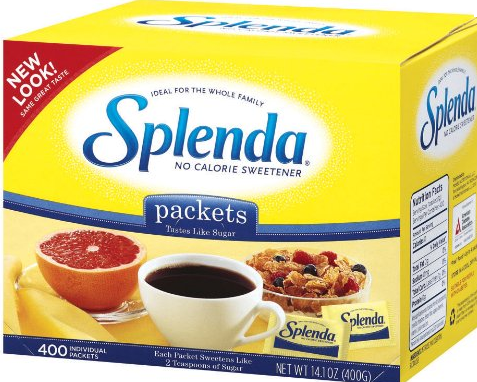 competitors, Saccharin & Aspartame, Splenda can withstand heat, making it ideal for cooking and baking. It is made from sugar but is not a considered a natural food product and is not used for energy by the body like sugar. Sucralose is approved for use in over 80 countries and is currently used in more than 4000 products worldwide. It is considered by many to be safer than aspartame and is quickly becoming the artificial sweetener of choice in many products. It is 600 times sweeter than sugar, and 85% of sucralose is not digested and leaves the body as it came in. Some users report headaches, including migraines, stomach bloating, gas, constipation, diahrrea.
competitors, Saccharin & Aspartame, Splenda can withstand heat, making it ideal for cooking and baking. It is made from sugar but is not a considered a natural food product and is not used for energy by the body like sugar. Sucralose is approved for use in over 80 countries and is currently used in more than 4000 products worldwide. It is considered by many to be safer than aspartame and is quickly becoming the artificial sweetener of choice in many products. It is 600 times sweeter than sugar, and 85% of sucralose is not digested and leaves the body as it came in. Some users report headaches, including migraines, stomach bloating, gas, constipation, diahrrea.
One thing you will notice about sucralose is that a lot of protein powders, bars, and other ‘health’ foods will have it listed as one of the last ingredients. That is because it is considered one of the ‘safest’ artificial sweeteners (it is derived from real sugar), and the amount used is very small due to the fact that is is 600x sweeter than real sugar. Also sucralose by itself in my personal opinion is OK as long as companies don’t add fillers to it like (Maltodextrin, also known as Glucose Polymers), or Dextrose to it.
Sorbitol & Mannitol (sugar alcohol)
Sorbitol and mannitol are sweeteners that can be found naturally, but sorbitol can be created by the reduction of glucose, and mannitol by the hydrogenation of fructose. For this reason, I am including the ‘sugar alcohols’ with the artificial sweeteners. Sorbitol is a naturally occurring sugar in fruit and is used as a sugar substitute, food additive and preservative. It’s most commonly used in sugar-free gums and mints. BEWARE, sugar alcohols have a laxative effect if you eat too much! They act as slow digesting carbs, and Many learn this the hard way after eating a bag of “sugar free” candy- which is typically made with sorbitol now.
Some alternatives to artificial sweeteners
Stevia- (Truvia & Pure Via)
This South American herb plant, has been used for centuries to sweeten tea and other foods in it’s native countries, and is considered the sugar substitute of the ORGANIC, and natural food industry. Stevia has negligible effects on blood sugar, and is useful to diabetics and those on carbohydrate controlled diets. Like Sucralose, stevia can also be used in cooking and baking and it’s up to 300 times sweeter than sugar.
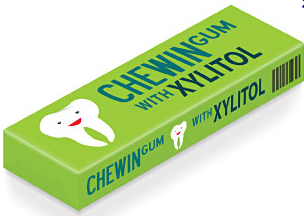 Xylitol
Xylitol
is a natural sweetener found in berries and grains but in it’s commercial form, it’s NOT a natural food source. Xylitol has the same texture and sweetness as sugar. Your body CAN metabolize Xylitol but only about half that you consume reaches your bloodstream, the other half goes directly to your large intestine. If you consume too much, your likely to suffer from bloating and diarrhea.
Agave
This syrup is made from the agave plant which also brings us tequila, but… don’t break out the salt & lime just yet! Even though agave comes from a plant, by the time you buy it in the store, it’s been highly processed like all the other sweeteners. Agave ranks lower than many other sweeteners on the glycemic index but the American Diabetes Association considers it a food to be limited by diabetics. Agave is 1.5 times sweeter than sugar and unlike the other sugar substitutes, this one has 60 calories per teaspoon (Sugar has 15 calories per teaspoon, 45 per 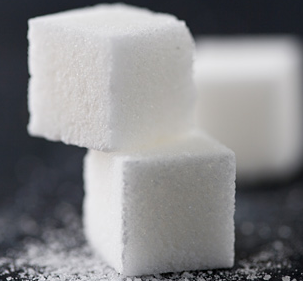 tablespoon.) Agave is used in teas, energy drinks, nutrition bars and will likely start showing up in many more of your favorite, natural food products.
tablespoon.) Agave is used in teas, energy drinks, nutrition bars and will likely start showing up in many more of your favorite, natural food products.
Actual REAL Sugar
I am not going to delve into a debate about the pros and cons of real sugar in this blog. Just know this, real sugar has just 15 calories a teaspoon and 45 calories per tablespoon. Sugar may have it’s issues if overused over a period of time, but there are worse things than occasionally adding a 15 calorie teaspoon of REAL sugar when having a sweet treat!
Conclusion
In the end, it is up to you! I personally don’t eat processed foods, drink diet sodas, or eat artificially sweetened desserts which are the main offenders. I have tried the ‘all natural’ protein powders, but I just so happen to like the taste of some protein powders that do have a little bit of sucralose. Because it is used in such small amounts, and I eat clean; I don’t worry about it very much. That said, if those proteins ever offer a natural version, I will be the first to try it!
Excuses or Solutions…YOU Decide!
-Natalie Jill
Bloat, Fat, and Fatigue BE GONE! Give me 7 days to teach you the habits to get the weight off and change your life FOREVER! Start HERE
